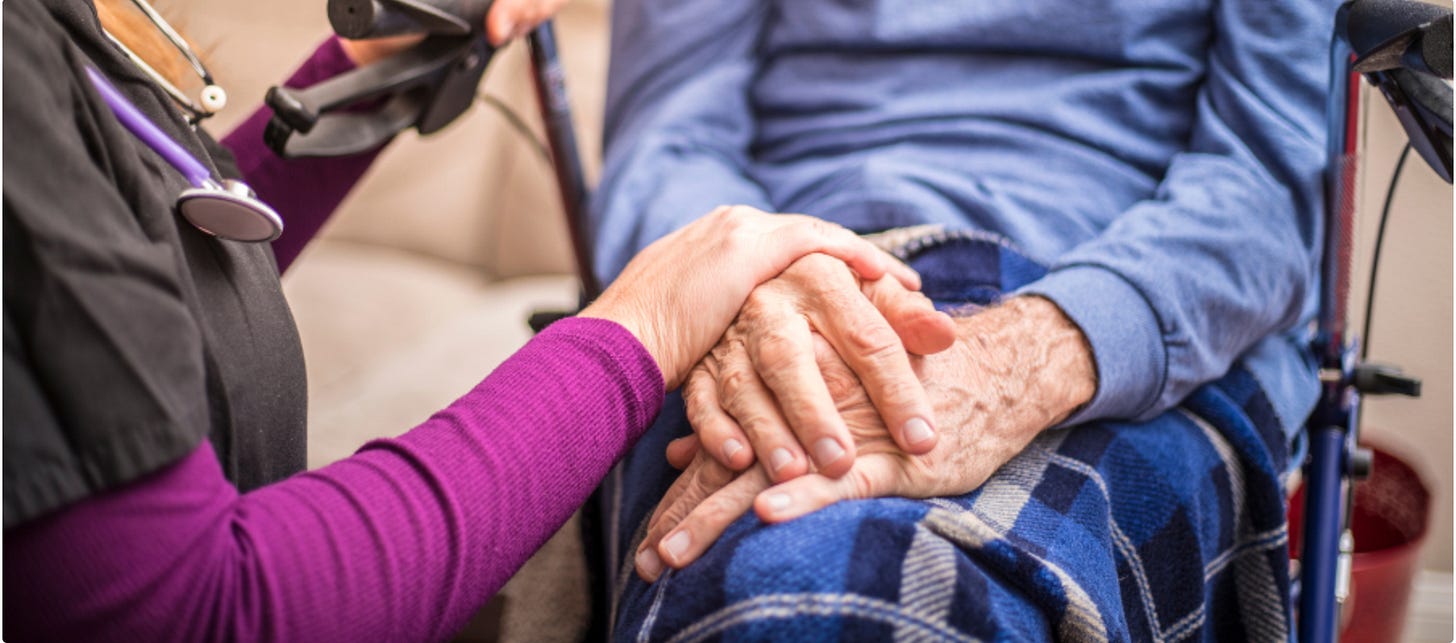
My guest for the fifth episode of the ‘Careful Thinking’ podcast is Ruth Groenhout, a Distinguished Professor of Health Ethics at UNC Charlotte in the United States. Ruth's research in healthcare ethics has focussed on issues of gender, health systems and organisations, and health policy. She has published widely on care ethics, bioethics, feminism and faith, and her many books include Connected Lives: Human Nature and an Ethics of Care (2004) and Care Ethics and Social Structures in Medicine (2019), both of which we discuss in the episode.
Ruth GroenhoutI first came across Ruth’s book Connected Lives a few years ago, when I was just beginning to be interested in care ethics, and I’ve found it one of the most accessible and thought-provoking introductions to the subject, and one I’d warmly recommend. More recently, Ruth and I were both contributors to an edited collection on Care Ethics, Religion, and Spiritual Traditions, and on a personal level I’ve found Ruth’s writings on the connections and tensions between feminist care ethics and religious faith enormously helpful.
Our conversation on the podcast began with the origins of Ruth’s interest, as a philosopher, in care ethics, and the parallel influences on her thinking of feminism and Christian faith, before moving on to the ways in which an ethics of care can provide an alternative to the dominant Western philosophical tradition, as well as its relevance, not only for interpersonal caring relations, but also for some of the difficult debates and dilemmas in contemporary healthcare. Among other things we talked about some of the ethical issues around new reproductive technologies, the economics of health care, and end-of-life care, including Ruth’s possibly controversial ‘alternative history’ of how pressure from patient groups around the ‘right’ to die may have contributed to the widespread introduction of hospice care.
There were a number of parallels and overlaps in our discussion with previous episodes of the podcast. Ruth’s interest in the philosophy of Emmanuel Levinas as a resource for care ethics recalled my conversation with Nigel Rapport in Episode 3, while our discussion of relationality as a central component of human nature, and the importance of recognising the humanity of those suffering from dementia, had echoes of my interview with Xavier Symons in Episode 2.
Here are a few quotes by Ruth from the episode, to give you a taste of our conversation...
On the connections between faith and care:
There’s a long history of Christian theology making love the centre of things...so when you move into care, there’s a sort of natural connection between care and love.
The first lesson [from the Christian tradition] is how important forgiveness is for relations of care or love, on both ends. I forgive you, you forgive me, and we both actually learn to forgive ourselves.
On care ethics as an alternative to philosophical accounts of human nature that over-emphasise rationality:
Working in medical ethics, one of the things that concerned me was the way that children, folks with disabilities, elderly folks that suffered dementia, they tended to get pushed out of the human category altogether...especially at the end of life, when rationality is not going to come back. And that seemed deeply wrong. The emphasis in care on caring relationality, as a central part of what it is to be a human being, really resonated with me.
On the relevance of care ethics beyond the interpersonal:
Care theory does need to be able to talk about policies, about social structures...and in healthcare, in medicine, I argue that the best way to do that...is not to turn everything to personal relationships, but instead to look to how social structures affect the way that caring relationships become even possible.
On the hospice movement as an example of a care ethical approach to end-of-life care:
Hospice has been enormously important. It moved patients away from being seen as physical objects that need really aggressive care into a much more relational situation. So hospice care really does offer a recognition of the importance of relations.
You can listen to the whole episode here, or wherever you get your podcasts. As always, I’d welcome comments and feedback.
You can download a transcript of the episode here:
Footnote
The header image is from an appeal for donations to support the work of Garden House Hospice in Letchworth, Hertfordshire, the charity that cared for my late mother-in-law in the final weeks of her life.




